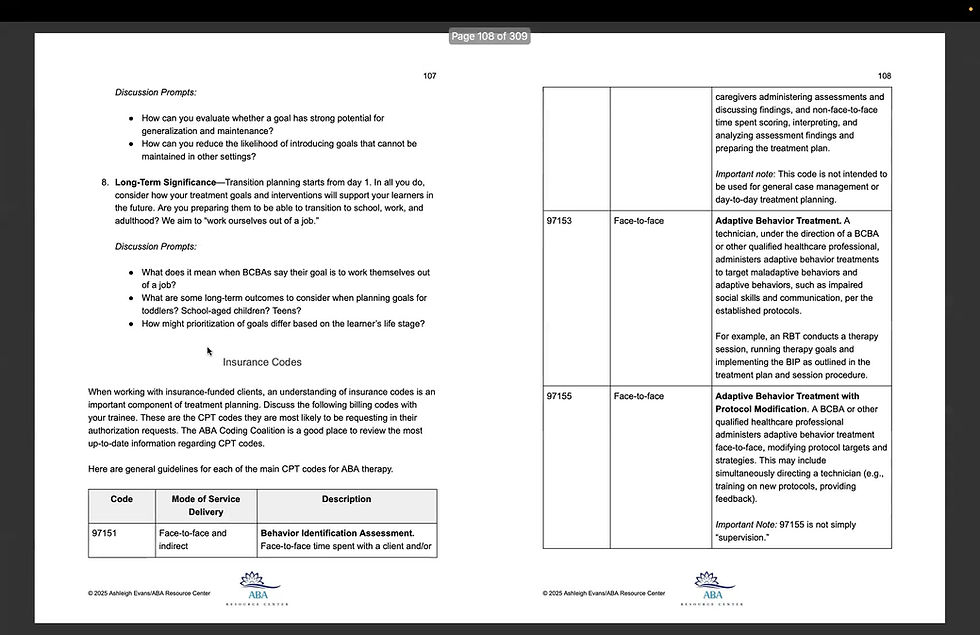Evaluating Social Skills with the Socially Savvy Assessment
- Ashleigh

- Jul 18
- 3 min read
Updated: Jul 29

We're continuing our ABA Assessments Series with an overview of the Socially Savvy Assessment.
As ABA clinicians, we support learners who experience the world in unique ways. This includes how they connect with others, communicate, and build relationships. Social interaction is a complex skill set that develops differently for every child. Instead of viewing these differences as deficits, our role is to recognize and build on each learner’s strengths while supporting the development of meaningful social behaviors that enhance their quality of life.
The Socially Savvy assessment provides a developmentally informed framework to guide behavior analysts in supporting critical social skills. This assessment and curriculum guide helps clinicians identify, teach, and support social skill development in a way that honors individual differences while promoting participation, connection, and confidence.
What Is Socially Savvy?
Developed by James T. Ellis, Ph.D., BCBA-D, and Christine Almeida, M.S.Ed, Ed.S, BCBA, Socially Savvy is an assessment and curriculum guide designed for clinicians, educators, and parents. This tool breaks down areas of social functioning into concrete skills to assess and teach.
What Does the Socially Savvy Assessment Evaluate?
Socially Savvy addresses seven core areas of social functioning:
Joint Attending, such as following points or gestures.
Social Play, like sharing materials and playing cooperatively.
Self-regulation, including demonstrating flexibility and engaging in calming strategies.
Social/Emotional, such as recognizing emotions in oneself and others.
Social Language, such as responding to and initiating greetings.
Classroom/Group Behavior, like following directions and attending to small-group work.
Nonverbal Social Language, such as initiating nonverbal interactions.
Each skill area is broken down into observable, measurable goals, allowing teachers and BCBAs to develop measurable, individualized goals and build programs.
Is Socially Savvy a Curriculum?
Socially Savvy functions as both an assessment tool and a social skills curriculum guide. After identifying your learner's current strengths and areas for growth using the checklist, clinicians and educators can use the curriculum component to guide targeted instruction.
The curriculum includes:
Skill-specific sample IEP objectives
Detailed step-by-step teaching plans
50 specific games and activities for teaching targeted social skills
Ideas on progress assessment and data collection
Two case studies to illustrate the process from initial assessment to intervention and data collection
Who Can Use Socially Savvy?
Socially Savvy is designed with flexibility, making it useful across a range of people and settings. While it's particularly beneficial for behavior analysts working in ABA, it's also widely used by teachers and other clinicians. Even parents and caregivers can use the Socially Savvy assessment and curriculum guide to support their child's social skill development outside of school and therapy.
Socially Savvy is commonly used in the following settings.
ABA clinics
In-home therapy programs
Schools
Social skills groups
Parent training programs
Is Socially Savvy a Norm-Referenced Assessment?
Like most ABA skill assessments, Socially Savvy is a criterion-referenced assessment, not a norm-referenced assessment. Explore the differences between criterion and norm-referenced assessments in this article, Shining a Spotlight on Assessments Commonly Used in ABA.
Using Socially Savvy in ABA Treatment Planning
Socially Savvy breaks complex social skills down into observable behaviors, making it easy to align goals with insurance-funded ABA programs. Many of the sample goals in the curriculum can be adapted into skill acquisition programs and used across multiple settings.
BCBAs can use Socially Savvy to:
Establish baseline social skill abilities
Inform targeted goal planning
Create skill acquisition programs to target skill deficits
Naturally incorporate social skill development into play
Guide caregiver goals
Track progress over time
Where Can You Purchase Socially Savvy?
You can purchase Socially Savvy at Different Roads to Learning. They offer this assessment in both physical and E-book formats.
Related Articles:
Disclaimer: This article contains affiliate links, which means we may earn a small commission if you make a purchase through some of the links provided. This comes at no additional cost to you and does not influence our recommendations.


































Comments